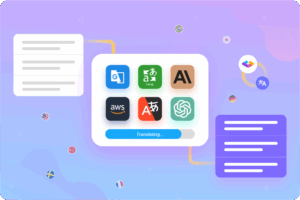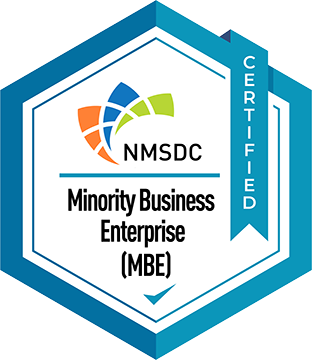2020 was an out-of-the-ordinary year for everyone, with COVID-19 affecting every aspect of daily life. The move to fully online courses was one of the most profound changes for students and professionals undergoing interpreting trainings. While most understand the ins and outs of taking a “traditional” course; the transition to online platforms is still difficult. In this two-part blog series; we’ll discuss the differences between virtual and in-person learning and proper preparation for your course. Knowing what to expect and how to prepare makes virtual training a breeze; improving your experience and outcomes.

How do Virtual Classroom Courses differ from In-Person Learning?
Virtual classroom courses differ from in-person learning in five key ways. As preparation is an excellent indicator of future success; keeping these differences in mind will help throughout your virtual course.
-
Home set up:
The first difference is that, naturally, virtual courses take place at your home rather than at an office or classroom. Set aside a designated space for your work. This doesn’t have to be stationary; if your home can’t accommodate a desk, use a table. Set up your workspace in the same way each morning of your course. Be sure to have a pen or pencil, notepad, and any supplementary materials close by. The goal is to simulate the space you’d have during an in-person course as well as possible.
-
Technological aspects:
Virtual classroom courses frequently use an online platform; such as Zoom, Skype, Blackboard, Abara, or another Learning Management System (LMS). Be sure to set up your account before the start date and ask your trainer any relevant questions.
-
Ability to Record:
One of the biggest advantages to virtual courses over in-person courses is the ability to record lectures for later review. Be sure to ask your trainer if this is allowed—in many cases; the taught information is intellectual property. If your trainer isn’t able or willing to participate in a recording; they’ll typically provide supplemental materials. These materials help in aiding information retention, just as they would during an in-person session.
-
Expanded Community:
An important aspect of in-person classes is the camaraderie and networking they make possible among students and trainers. Virtual classroom courses offer a different kind of community: one unlimited by geographical location. As they’re online, students are connected via chat functions. As with in-person activities, friendships are cemented during breakout rooms and question/answer sessions. Virtual classrooms allow student diversity rarely possible during in-person courses. This is especially useful for interpreters as the expanded classes allow for greater language-community opportunities.
-
Independent Study:
Virtual classrooms often rely on more independent study than in-person sessions. Lectures are more “timed” and it’s difficult to “stay after class” to talk with your trainer, especially in larger groups. Mark your questions down and e-mail them to your trainer or ask them at the beginning of class. As you’re online, you can also search for the answers in real-time, sharing with other participants via chat function.
Global Arena’s 16-Hour Virtual Classroom Interpreter Training
At Global Arena, we pride ourselves on our reputation for providing top-quality interpreter training programs and services. We’ve continued our interpreter trainings through the COVID-19 pandemic, switching to virtual classroom and expanding our online offerings. An example is our 16-hour Interpreter Training Course, successfully transitioned to a fully-online model. The course is especially targeted to interpreters who are starting out and want to hone their skills. It’s also perfect for experienced interpreters who’d like to brush up on their industry knowledge and work through skill-building activities.
Our training program meets all NBCMI and CCHI interpreter training standards:
The 16-hour Interpreter Training provides a certificate of interpreting training completion. You’ll be able to use this certificate to help you through the national certification process. It’s also immediately useful for working with hiring managers to find an interpreting position.
Each class consists of four days of live (over zoom) instruction, reviews, an exam, and a certificate upon completion and passing. The course integrates interpreting activities and practice into each module. It’s structured to be interpreting experience-centric: being an interpreter requires training, patience, understanding, and skill. Course focuses include the differences between bilingual speakers and trained interpreters, the role of the interpreter, and proper conduct. We also cover best practices, interpreting ethics, industry basics, and “dos and don’ts” for working as an interpreter. We’ll discuss common medical, legal, and school terminology and how to troubleshoot difficult situations. As we’re currently experiencing a global pandemic, we talk about how to properly use PPE during in-person interpreting. The course also allows practice and discussion about telephonic interpreting (OPI) and video-remote interpreting (VRI).
Our training has the added benefit of building your interpreting network: as you’re working together, the classes form a community. You’ll meet other interpreters of widely varying skill levels, learn from their expertise, and work closely to build your own. Our activities and discussions are excellent times to “troubleshoot” interpreting scenarios and share experiences. You’ll also have the opportunity to discuss the interpreting industry: particularly in improving conditions through standardized practice. Interpreting is more than a job: it’s skill, service, and vitality for non-English speaking communities in America. Global Arena’s 16-hour Interpreter Training is committed to building the foundation for a successful interpreting career.
For more information and sign-up, visit our Global Arena Interpreter Training page.







